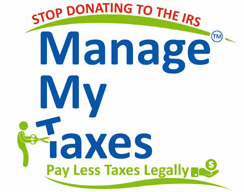Understanding the Decline in Your Tax Refund This Year

Why Tax Refunds Are Lower This Year
Many taxpayers in the USA and Canada have noticed a significant drop in their tax refunds in 2024. This trend can be attributed to several factors, including changes in tax laws, adjustments in withholding, and the expiration of pandemic-related tax benefits.
Key Factors Influencing Lower Tax Refunds:
- Expiration of Pandemic Relief Programs:
During the pandemic, various relief programs, such as stimulus payments and enhanced child tax credits, provided substantial tax benefits. With these programs now expired, taxpayers are seeing lower refunds.
- Changes in Withholding:
If you received a salary increase but did not adjust your tax withholding accordingly, you might owe more taxes, resulting in a smaller refund.
- Increased Income from Gig Economy and Investments:
Many individuals have earned additional income through gig work or investments. Without corresponding estimated tax payments, this can lead to higher tax liabilities and lower refunds.
Statistics Highlighting the Trend
- The average tax refund issued by the IRS through February 2024 was $1,395, compared to $1,963 at the same time last year.
- The IRS expects to process over 128.7 million individual tax returns by the April 15 deadline, with three out of four filers typically receiving a refund.
What Can You Do
To avoid surprises in your tax refund, consider the following steps:
- Adjust Your Withholding:
Review and adjust your W-4 form to ensure the correct amount of tax is withheld from your paycheck.
- Plan for Estimated Taxes:
If you have additional income from freelance work or investments, make estimated tax payments throughout the year.
Tax laws can be complex and ever-changing. Consulting with a tax professional can help you navigate these changes and optimize your tax situation.
Connect with Sulekha
If you're seeking expert tax and finance services in your city, look no further than Sulekha. Our platform connects you with top-rated tax and finance professionals in the USA and Canada, ensuring you get the best advice and support for your financial needs. Visit Sulekha today to find the right expert for you!
Searching for Financial & Taxation Services? Let’s make your search simple with professionals!
Take your Financial & Taxation Services to the next level with Sulekha. Boost your online visibility, connect with more clients, and grow effortlessly!
Blogs Related to Financial & Taxation Services

How Can You Use Payroll Data to Improve HR Strategy?
How Can You Use Payroll Data to Improve HR Strategy? Payroll isn’t just about paying employees—it’s a goldmine of business intelligence. When analysed strategically, payroll data reveals patterns that can transform your HR strategy

Is Your Bookkeeping a Mess? Are You Missing Out on Growth Opportunities?
Is Your Bookkeeping a Mess? Are You Missing Out on Growth Opportunities?

Need a Clearer Financial Picture? Why Compilation Services Can Help
Need a Clearer Financial Picture? Why Compilation Services Can Help. Understanding your company’s true financial health begins with accurate reporting. But not every business needs a full audit or review. For many small and mid-sized organisations,

Do You Need Clearer Financial Insights? What Can Modern Auditing Services Offer?
Do You Need Clearer Financial Insights? What Can Modern Auditing Services Offer? In today’s fast-paced business world, financial clarity is more than an advantage—it’s a necessity. Whether you run a small enterprise or a growing corporation, accurat

How Do You Find the Right Life Insurance Policy?
How Do You Find the Right Life Insurance Policy? Life insurance is more than a safety net—it’s a cornerstone of sound financial planning. Whether you’re protecting your family’s future, securing your business, or planning your estate, finding the ri

Why Is Investment Management Critical for High-Net-Worth Individuals?
Why Is Investment Management Critical for High-Net-Worth Individuals? Wealth accumulation is an achievement—but managing it effectively is an even greater challenge. For high-net-worth individuals (HNWIs), wealth management requires precision, fores




